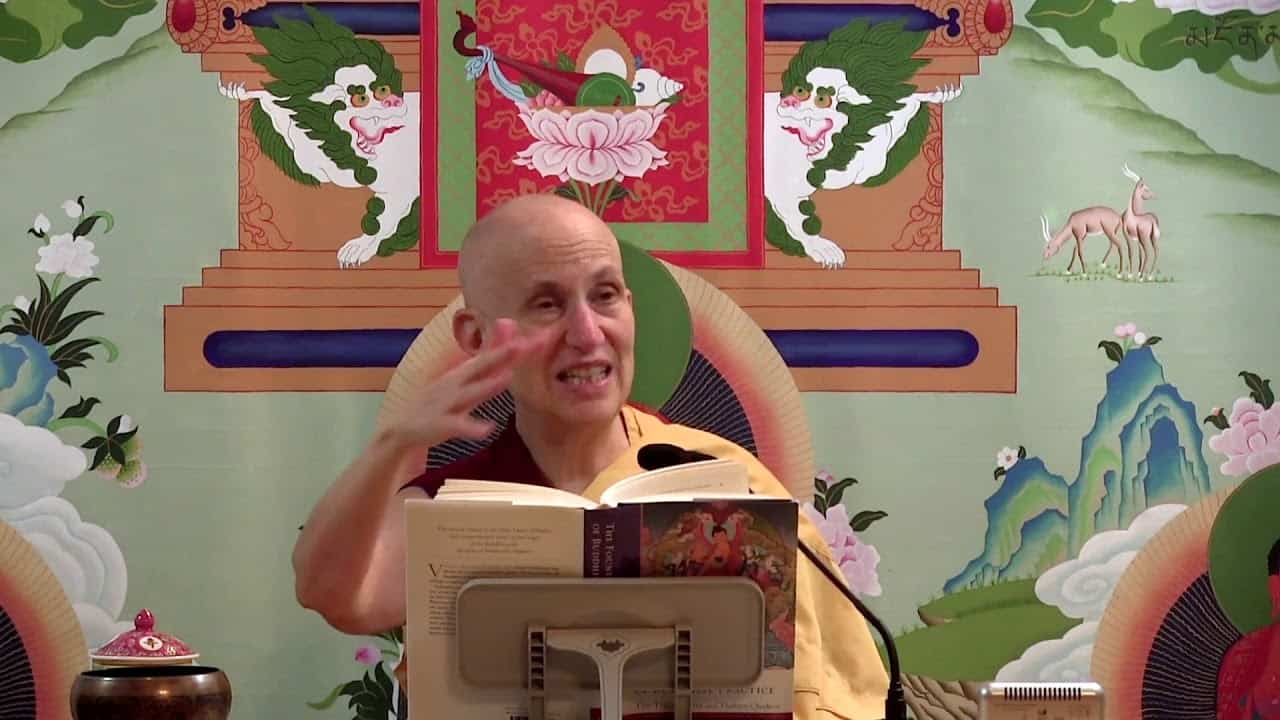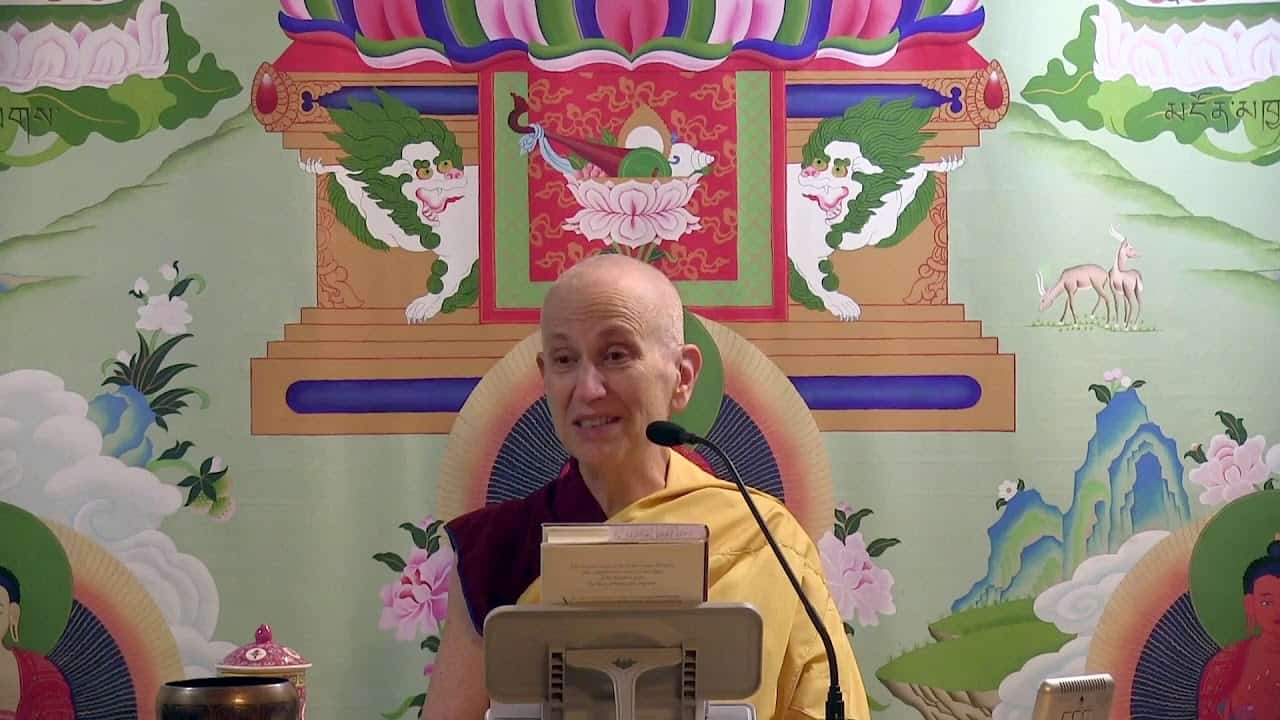Making requests, receiving blessings, and gaining realizations
33 The Foundation of Buddhist Practice
Part of an ongoing series of teachings (retreat and Friday) based on the book The Foundation of Buddhist Practice, second volume in “The Library of Wisdom and Compassion” series by His Holiness the Dalai Lama and Venerable Thubten Chodron.
- Meditation on six faults of cyclic existence and combining bodhicitta
- Contemplating lamrim topics in daily activities
- Using mindfulness and introspective awareness to see if we are living in accord with the ethical precepts
- How what we do in the break time affect the meditation session?
- Creating the causes to hear, reflect, and meditate on the teachings
- Internal and external cooperative conditions for us to gain the realizations
- Combination of our prior knowledge and current interest as well as a teacher who is wise and compassionate influence our learning
The Foundation of Buddhist Practice 33: Making Requests, Receiving Blessings and Gaining Realizations (download)
Contemplation points
- Why is it important to continue to contemplate your meditation topic throughout the day? How does this help the subsequent meditation session?
- Observe your own experience. What is the state of your mind during meditation when you spend the break times gossiping, singing, reading magazines, or watching violent films vs. when you keep your mind in the Dharma?
- What are the principal and cooperative causes for gaining realizations on the path? Explain in your own words how these come together to help us learn and grow. Which of these do you engage in? Are there any you’d like to put more energy into cultivating? What steps can you take to do that?
- Cultivating refuge helps us to transform our mind and make us more receptive to the Buddha’s influence on our lives. Why do you think this is? What is happening in our own mind?
Venerable Thubten Chodron
Venerable Chodron emphasizes the practical application of Buddha’s teachings in our daily lives and is especially skilled at explaining them in ways easily understood and practiced by Westerners. She is well known for her warm, humorous, and lucid teachings. She was ordained as a Buddhist nun in 1977 by Kyabje Ling Rinpoche in Dharamsala, India, and in 1986 she received bhikshuni (full) ordination in Taiwan. Read her full bio.


